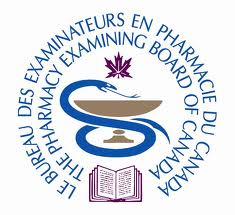to be hospital pharmacist 17
Ward-based pharmacy
Many people equate ward-based pharmacy with ‘clinical’ pharmacy, but
we think that these are two very different things. we demonstrated
our belief that all pharmacists, no matter where they are working,
should regard themselves as ‘clinical’ pharmacists. Just because you
are on a ward does not necessarily mean that you are thinking ‘clinically’.
It depends on your workplace what your ward duties are as a pre-reg, and
in reality, when you start your ward based duties, many of these are of a
technical rather than a clinical nature.
we think that these are two very different things. we demonstrated
our belief that all pharmacists, no matter where they are working,
should regard themselves as ‘clinical’ pharmacists. Just because you
are on a ward does not necessarily mean that you are thinking ‘clinically’.
It depends on your workplace what your ward duties are as a pre-reg, and
in reality, when you start your ward based duties, many of these are of a
technical rather than a clinical nature.
Ward-based pharmacy may include some of the following activities:
GPs, speaking to patients and their carers, assessing patients’ own
medication, etc.
* Ordering of inpatient items for patients
* Checking ward stock, including controlled drugs and injectables
* Ward stock top-up
* Audit work
* Updating and maintaining ward folders
* Producing patient care plans
* Speaking to doctors, nurses and other ward staff to resolve any
medicine-related problems
* Advising ward staff on correct administration of medicines, including
injectable drugs
* Counselling patients or carers on their medication, e.g. device or
warfarin counselling
* Contacting community pharmacists and GPs before patients are discharged
to ensure smooth patient transfer back into the community
* Giving training sessions to ward staff on medicine-related issues
* Undertaking specific directorate work for specific teams of doctors;
this may include financial, audit and formulary work
* Attending ward rounds
* Writing, screening and preparing discharge prescriptions
* Providing written patient reminders to aid patient compliance
* Providing answers to medicine-related inquiries for ward staff and
patients.
Seeing or coming into contact with your first patient may be a daunting
prospect, especially as you now have a job to do, as opposed to when you saw
a patient on a ward as part of your undergraduate degree and the point of
speaking to him or her was for your own learning.
The anxiety of interacting with patients is that you can never predict
what they are going to say or do, and they might ask you a question to which
you don’t have the answer. If you are someone who needs to prepare before
speaking to a patient, make sure that you do this. Bear in mind that you
cannot prepare for every eventuality and at some point you will interact with
patients who behave in a manner that you would not expect, or ask you
questions for which you are unprepared.
When first encountering patients in the ward environment, always bear
in mind that the people to whom you are talking may not be at their best –
they are, after all, in hospital! So, if patients are not so willing to talk to you,
do not take it personally – they may be tired or in pain.
Whenever you talk to patients, always introduce yourself clearly and
state the reason why you are speaking to them. It can be confusing for
patients to see many different healthcare professionals on the ward with little
clue as to who is who and what they are all doing!
Talk to patients in plain English; avoid medical jargon such as ‘I’m here
to take your drug history’ or ‘I’ve come to prepare your TTO’ (where a TTO
is a discharge prescription) because this means little to patients and adds to
their anxiety. A major role of pharmacy staff is translation of complex
medical or pharmaceutical information into plain English that patients
understand.
You need to practise this type of communication until you get
it right because it is hard to strike the right balance and not end up being
condescending to a relatively knowledgeable patient.
For most interactions with patients, it is useful to as certain their baseline
knowledge and work from there. We always ask patients what the
doctors have already told them, or what they already know, because this is
a useful place to start.
it right because it is hard to strike the right balance and not end up being
condescending to a relatively knowledgeable patient.
For most interactions with patients, it is useful to as certain their baseline
knowledge and work from there. We always ask patients what the
doctors have already told them, or what they already know, because this is
a useful place to start.



Comments